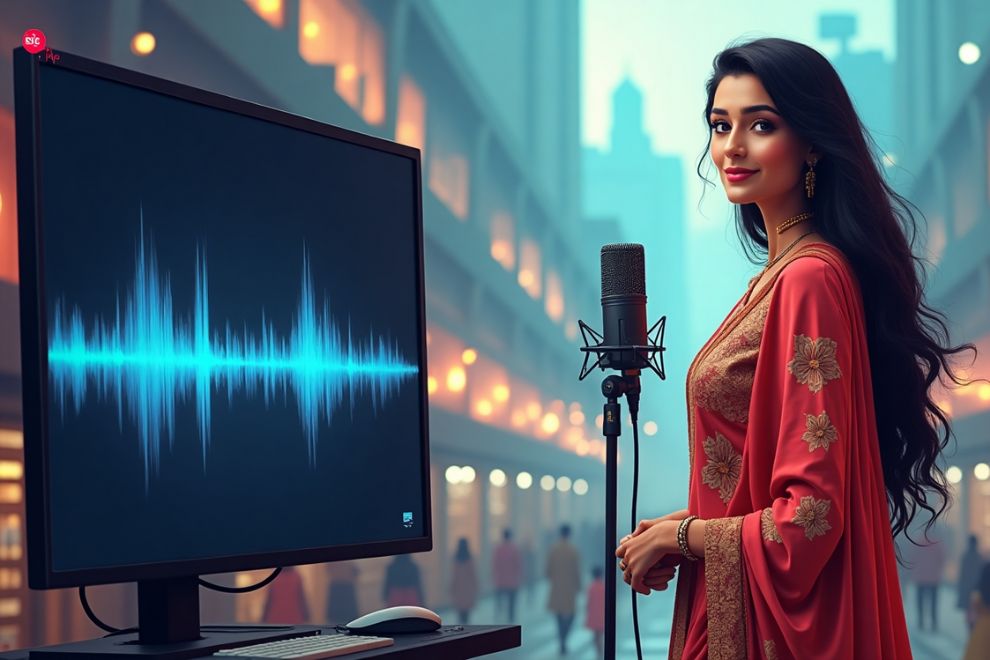Bollywood is no stranger to innovation. From extravagant CGI to advanced editing techniques, Indian cinema has always evolved with time. But a new player is silently entering the stage—AI voice cloning. This cutting-edge technology can now replicate human voices so accurately that it’s beginning to challenge traditional voice dubbing, actor performances, and even the creative authenticity of films.
What Is AI Voice Cloning?
AI voice cloning uses machine learning and deep neural networks to replicate a person’s voice. By feeding the algorithm just a few minutes of audio, it can generate new speech that sounds identical to the original voice—down to the tone, pitch, and emotion.
In short, it allows filmmakers to make an actor “say” anything, even if they never recorded those lines.
How It’s Entering Bollywood
In recent months, AI voice cloning has been quietly tested in the Indian film industry. Post-production teams and dubbing artists are using it to:
- Re-record flawed dialogue without requiring the actor
- Translate Hindi dialogues into regional languages with the original actor’s voice
- Create backup voiceovers in case of scheduling issues or actor unavailability
Even some advertising agencies and OTT platforms are beginning to explore AI-generated voices for multilingual content.
Benefits Bollywood Can’t Ignore
- Faster Post-Production
Fixing dialogue mistakes or making last-minute script changes no longer needs a studio session. AI can re-speak the line instantly. - Cost-Effective Dubbing
Instead of hiring voice artists in every regional language, AI can generate dubbed content with the actor’s cloned voice, preserving authenticity. - Accessibility and Reach
AI allows for faster localization, making Bollywood films accessible across more languages and platforms globally.
The Dark Side: Creative & Ethical Concerns
While AI voice cloning brings efficiency, it also opens Pandora’s box:
- Consent & Misuse: If an actor’s voice is cloned without permission, it becomes a legal and moral grey area.
- Loss of Human Touch: Dubbing is an art. AI may mimic voice, but it often lacks genuine emotion and depth.
- Impact on Jobs: Voice artists and dubbing professionals may face reduced demand, threatening their livelihood.
Bollywood’s Mixed Reactions
Some filmmakers are excited by the possibilities, especially for posthumous scenes or recreating iconic dialogues. Others, however, fear it could lead to “deepfake performances”, where AI replaces not just voice but also emotion, creating an artificial experience for the audience.
Veteran dubbing artists have voiced concerns that AI could “erase the soul” of dialogue delivery.
The Road Ahead: Coexistence or Conflict?
The future of AI in Bollywood won’t be black or white—it’s likely to be a hybrid model. While AI will assist in technical and repetitive tasks, human talent will still be essential for emotional nuance and originality.
Expect a growing call for regulations, voice rights contracts, and ethical guidelines to protect both artists and audience trust.
Conclusion
AI voice cloning is no longer sci-fi—it’s already reshaping the way Bollywood dubs and delivers dialogue. While it brings promise in terms of speed and scalability, it also stirs deep questions about creativity, consent, and authenticity.
Whether embraced or resisted, one thing is certain: Bollywood’s voice will never sound the same again.


